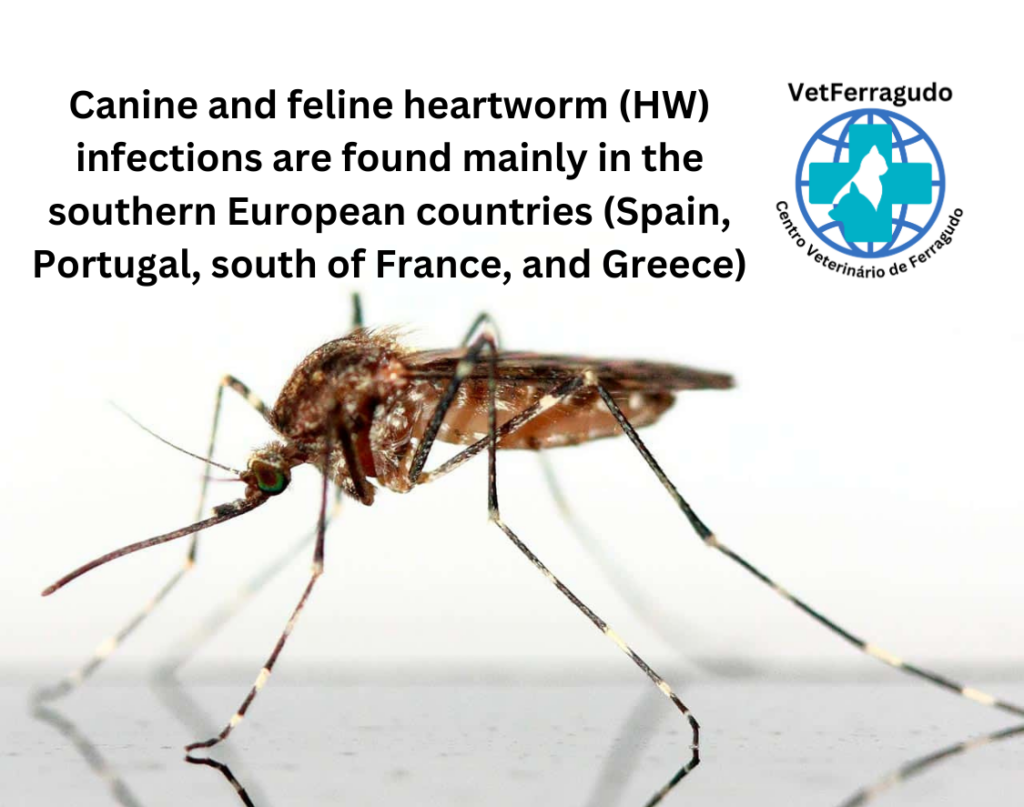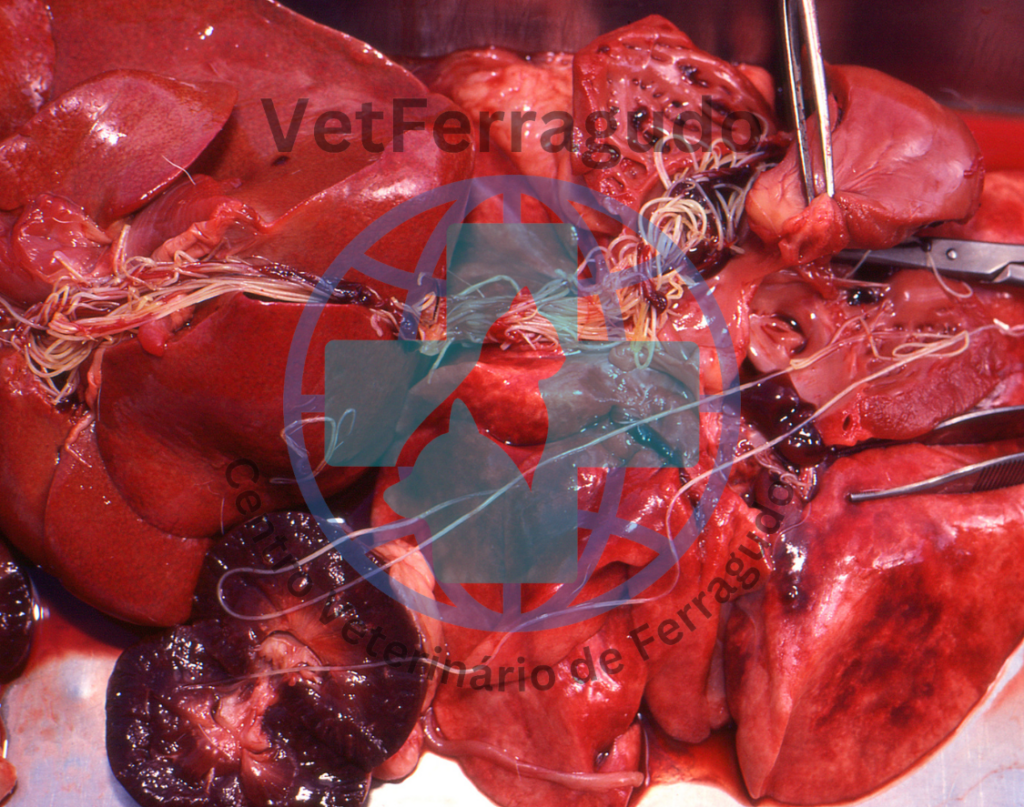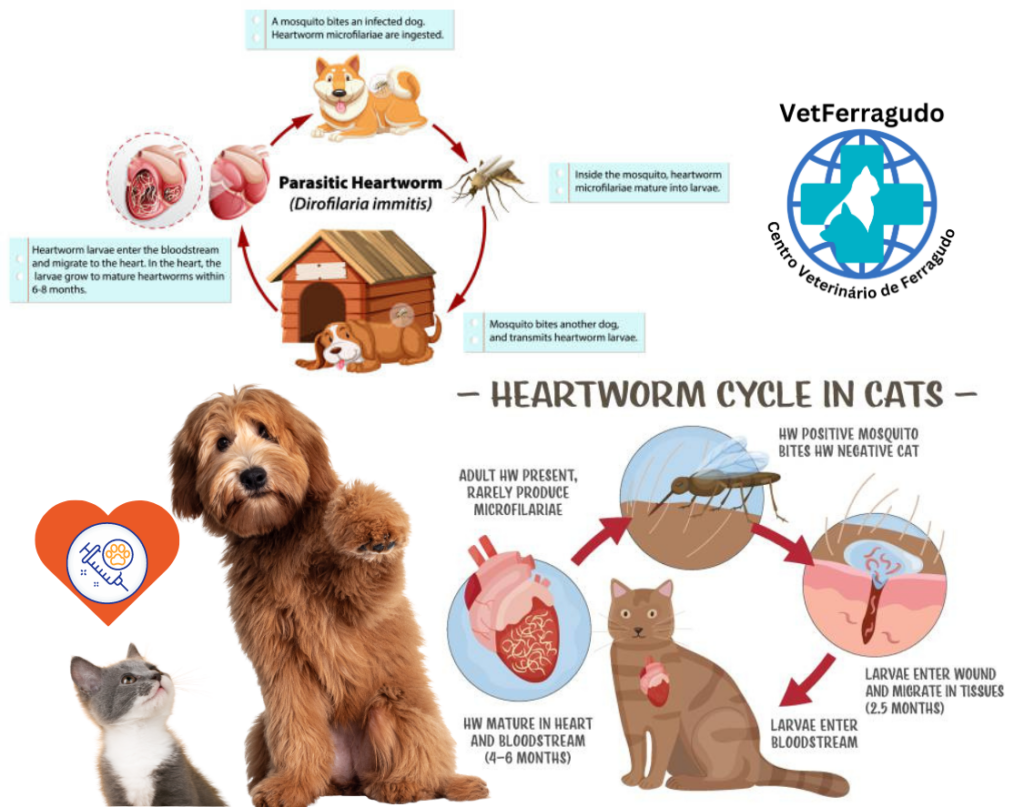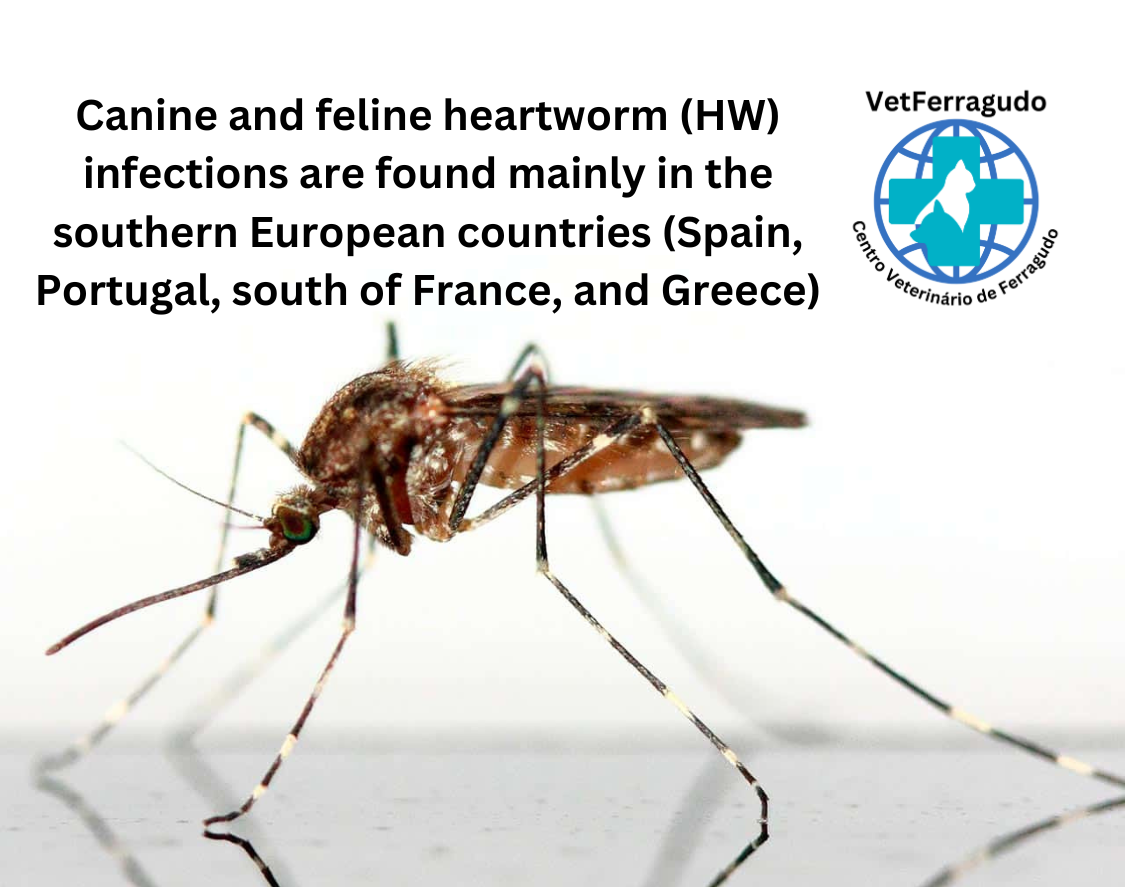Heartworm disease in dogs is a serious and potentially fatal disease caused by foot-long worms known as heartworms.

These worms live in the heart, lungs, and associated blood vessels of affected pets, leading to severe lung disease, heart failure, and damage to other organs in the body. Heartworms can affect dogs, cats, and ferrets, as well as other mammal species like wolves, coyotes, and foxes.
The disease is transmitted through mosquitoes, which carry the heartworm larvae (microfilariae) from an infected animal to a new host. Prevention through medications and regular veterinary check-ups is crucial to protect pets from heartworm disease.

Symptoms:
- Coughing
- Fatigue
- Weight loss
- Difficulty breathing
- Swelling in the abdomen
Diagnosis:
Veterinarians diagnose heartworms through blood tests, imaging, and physical examinations.
Treatment:
Treatment involves medications to kill the adult worms, which can be risky and requires careful management. Preventive medications are crucial for avoiding infection.
Prevention:
Monthly heartworm preventatives are recommended for all dogs, especially in endemic areas. Regular veterinary check-ups are essential for early detection and treatment.

Heartworm disease in cats is similar to heartworm disease in dogs but has some distinct differences. Cats are less commonly affected by heartworms than dogs, but the disease can still be serious and potentially fatal in felines.
When cats are infected with heartworms, the parasites typically do not reach full maturity as they do in dogs. Instead, the immature worms often locate themselves in the respiratory system, including the lungs, where they can cause severe inflammation and respiratory issues.
Symptoms of heartworm disease in cats can vary and may include coughing, difficulty breathing, vomiting, weight loss, and lethargy. Unfortunately, diagnosing heartworm disease in cats can be challenging, as there is no specific treatment for feline heartworm infection. Prevention is crucial for protecting cats from this disease, and pet owners should consult their veterinarians for advice on preventive measures.
